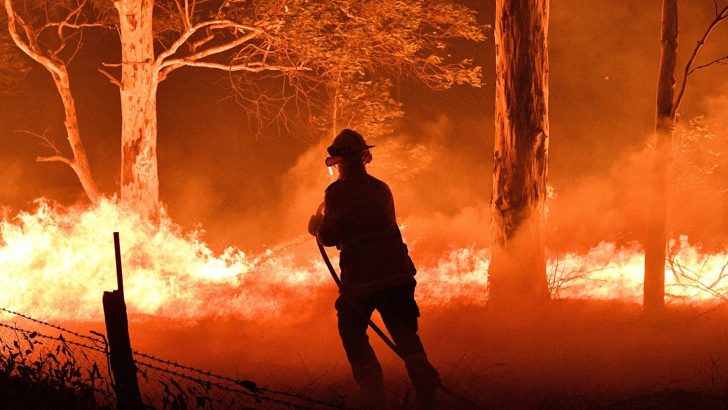Mindful Living
The COP26 Climate Change Conference, which took place in Glasgow in November 2021 was widely regarded as humanity’s last chance to prevent catastrophic global warming. The consequences of the unjustified war in Ukraine makes it even more difficult to achieve the targets we must attain. In recent years we have seen with increasing frequency and ferocity on our TVs, the devastating bushfires in Australia, California and many other places throughout the world. And such events continue with increasing frequency.
Anglican priest Linda Chapman witnessed at first-hand the devastation caused by one of those utterly destructive bushfires which swept along the South Eastern seaboard of Australia. In addition to the displacement of persons who lost their livelihoods and belongings, she also witnessed the destruction of so many life-forms; she observed Koala bears climbing higher and higher up tall trees, being chased by the rising flames which finally overwhelmed them resulting in a very painful death. She saw birds being driven out to sea finding no place to land and later being washed up on beaches.
The displacement of communities and the sacrifice of native species because of human failure to act on climate change is heart-breaking. Linda Chapman observes that the truth is, that like the birds, we too have nowhere else to go. So we must urgently start the work of transfiguration. To do so we must recover our sense of inter-connectedness not just as a mental construct, not simply as a concept we acknowledge, but we must experience it as a reality in our everyday lives.
Climate change is a challenging crisis to face. It does not have the immediacy of a plague or tsunami. And we have seen, how faced with the immediate crisis of Covid-19, human beings have struggled to find an appropriate inter-connected response. Instead, the wealthiest countries have looked after their own, at the expense of the most-needy in the world. We have witnessed how conspiracy theories of all kinds, arguing that Covid-19 is not real, have made it so much more difficult to deal effectively with the challenge.
St Augustine suggested that sin is being turned in upon oneself rather than being open to God”
Universal wisdom sees the world as a ‘great chain of being’, but humanity has become its weakest link. Until we accept, individually and collectively, that climate change has to do with how we live on a daily basis – the food we eat, the transportation we use, the vast array of unnecessary luxuries we consume in the Western world and regard as somehow ‘essential’ to our wellbeing.
Richard Rohr observes that when it comes to climate change the real challenge here is to appreciate that the ‘enemy’ we are called to fight is ourselves; the enemy is the very ordinary life we ourselves are leading. At its most basic level, climate change is the result of too many well-off human beings using too much energy and taking up too much space on the planet. Through such excessive energy use and its accompanying greenhouse-gas emissions, we are changing the planet’s climate in ways that will make it uninhabitable for ourselves and many other species. Wresting our future from the grip of fossil fuel seems impossible – our addiction is too strong, affordable options are too few, and the powers that defend the status quo are powerful. We cannot be freed by chipping away at this millstone; instead, the climate crisis calls us to a radical turn-around that changes the way we see the world, the way we ‘figure things out’ and live out our everyday lives.
St Augustine suggested that sin is being turned in upon oneself rather than being open to God. In our ecological age, we now see that being open to God means being open to the other creatures upon whom we depend and who depend upon us. Meditation works by taking us beyond the boundaries of the ego; it opens us to deep awareness of the true-self, to the Divine within us in whom we live and move and have our being. Meditation makes us aware that God is incarnate not just in us but in all of creation. And that we have a responsibility to care not just for ourselves and our immediate family and friends, but for all human beings; indeed, for all of creation. We are called to collaborate with one another, to live our lives from a perspective of self-giving love rather than one of self-centred fear; to live consciously in radical interdependence with all of God’s creation.
For this we need a contemplative stance. We know that meditation builds hope, resilience and community. It gives us the capacity to stand back and see the bigger picture. It can make us wiser, kinder persons and improve our ability to listen. It can help us to stand back from adversarial debate and to have meaningful conversations with others about our response to this crisis.
Because meditation makes us keenly aware of who we are in God and who God is in us, we know that we are not alone as we face this challenge – the universal Christ is in, with, and for us and the world as we struggle to understand what we are called to do.



